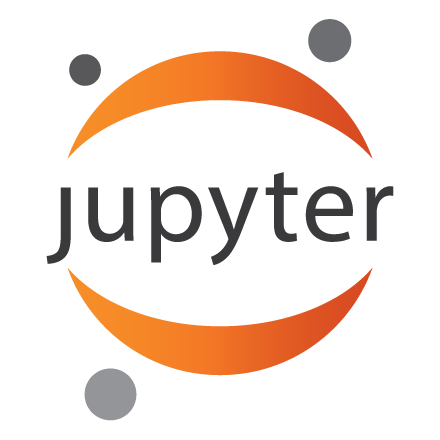
|
Jupyter at Bryn Mawr College |
|
|
| Public notebooks: /services/public/dblank / CS110 Intro to Computing / 2015-Spring / Lectures | |||
1. What is Computer Science?¶
"The art and science of turning ideas into mechanized operations." -Douglas Blank, Apr 22, 2015, 2:45pm.
Computer science is not programming. But we spent a lot of time programming. Yes, we did. But now that we know the basics, we can use that knowledge to build concrete ideas on a solid foundation.
1.1 What should I have gotten out of this course?¶
- Understanding of some core ideas in computer science
- hands-on exploration of the idea of an "algorithm"
- hands-on exploration of the ideas in computing, including functions, variables, loops, types
- hands-on exploration (and appreciation) of Object-Oriented Programming
- First-hand knowledge:
- computing can take time
- animations/simulations/games are just repeatedly drawing with slight changes
- Detailed exploration of:
- image processing
- visualizations
- robot control
- designing and using classes
1.2 Little Ideas¶
- Programs run from top to bottom
- An infinite loop is one that runs for ever (while (true) { ... })
See Jeopardy review for more gathered from the in-class exercise.
1.3 Big Ideas from CS110¶
- Control structure - if, loops
- Loops (
forandwhile) - if, else if, else
- Loops (
- Functions (defining and calling)
- Variables (global and local)
- Parameters
- Arguments
- Recursion - when a function is defined in terms of itself. See quicksort
- Types - int, float, boolean, void, int[], etc
- Classes - defining and instantiating
- Instance
- Sorting - different algorithms take time
- Finite State Machine (FSM) - robot control
1.4 Topics¶
Computer Science covers:
- Data structures (things like arrays and lists, but more complicated things like trees, dictionaries, and graphs)
- Cognitive Science
- Artificial Intelligence
- Logic
- Machine Learning
- Robotics
- Vision/Image Processing
- Developmental Robotics
- Computational Linguistics
- Artificial Intelligence
- Operating Systems
- Programming Languages
- Compilers
- Human-Computer Interaction
- Interface Design
- Web design
- Theory of Computation
- Analysis of Algorithms
- Software Engineering
- Security
- Cryptography
- Compression
- Forensics
- Genomics
- Bioinformatics
- Art
- Graphics
- Game design
- Database Design and Theory
- Mathematics
- Discrete Math
- Number Theory
- Game Theory
- Numerical Analysis
- Computational Geometry
- Networks (Graph Theory)
- Programming
- Object-Oriented Programming (OOP) (Java, C++, Python, etc.)
- Functional Programming (Haskell, F#, Scheme, Lisp, Python, etc.)
- Logic programming (Prolog, etc.)
- Imperative Programming (C, Java, Python, etc.)
- Declarative Programming (SQL, Prolog, etc.)
- Parallel Computing
- Quantum Computing
- and many, many others... some just being created!
Related areas:
- Computer Engineering
- Electrical Engineering
- Informatics
1.5 Courses at Bryn Mawr College¶
1.6 Assignment Ideas¶
- Assignment #1 - Getting started with something relevant to you
- Assignment #2 - Design a drawable (parameterized) thing
- Assignment #3 - Abstract art; practice with functions
- Assignment #4 - Creating visualizations to help tell a story
- Assignment #5 - Introduction to OOP
- Assignment #6 - More experience with OOP
- Assignment #7 - Objects with internal state; experience with 3D perspective
- Assignment #8 - Robot control (internal state, Finite State Machine)
- Assignment #9 - Image Processing - manipulate pixels for different purposes
- Assignment #10 - Capstone, free choice; demonstrate what you know
1.7 What do BMC CS students do after college?¶
- work for:
- microsoft
- banks
- start-ups
- go to grad school in CS:
- princeton
- upenn
- university of ... you name it
- other grad schools (law)
- teach (middle school, high school)
- other things!
- become a comedian, no joking